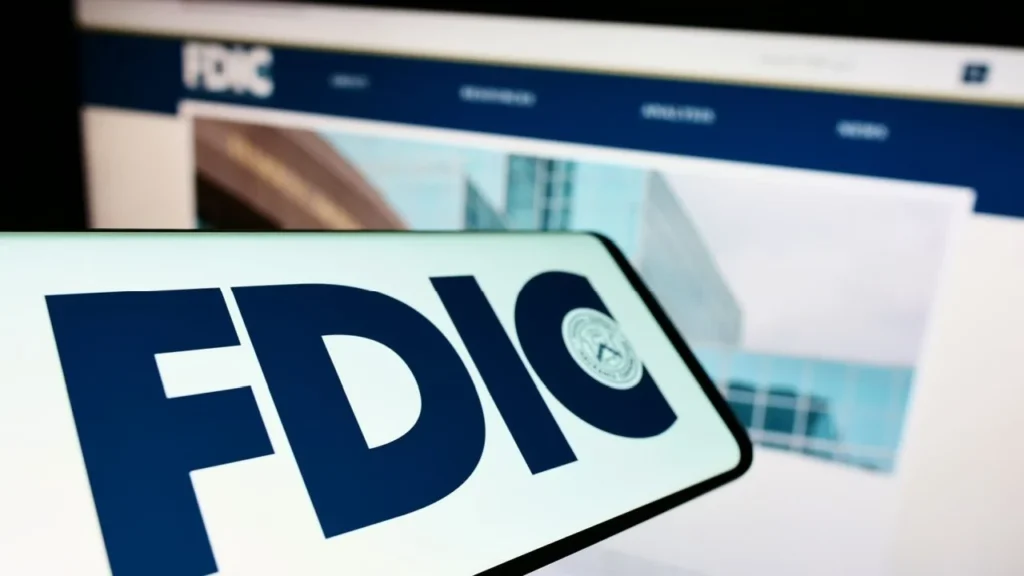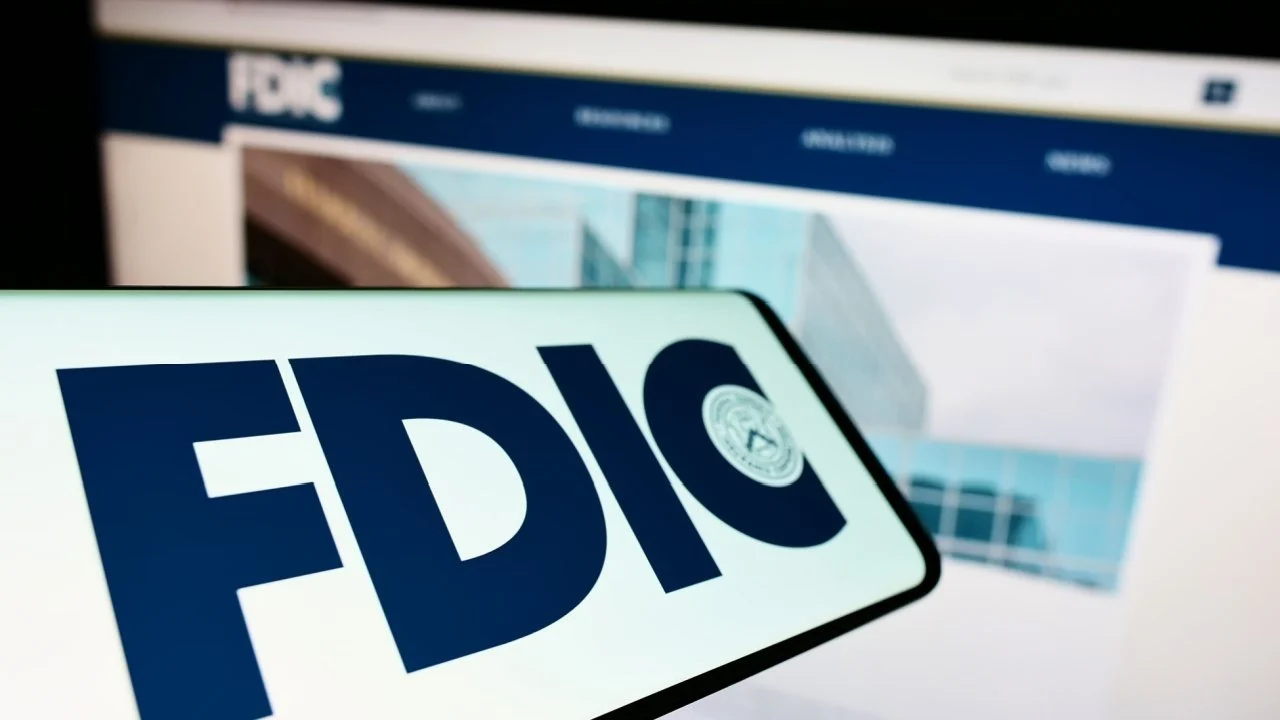
The FDIC has taken a groundbreaking step towards integrating traditional banking with the digital asset industry. In a significant policy change, the FDIC is reportedly revising its guidelines, making it easier for banks to engage with crypto. This move could revolutionize the financial sector, enabling banks to offer tokenized deposits and participate in blockchain-based transactions.
For years, financial institutions have struggled to navigate stringent regulations around digital assets. However, with this shift, banks may finally enter the crypto space with fewer regulatory hurdles. Let’s explore what this means for the future of banking and cryptocurrency.
Table of Contents
What Is the FDIC?
The FDIC (Federal Deposit Insurance Corporation) is a U.S. government agency that ensures stability in the financial system by insuring deposits in banks. Established during the Great Depression, the FDIC plays a crucial role in protecting consumers and maintaining trust in banking.
Traditionally, the FDIC has taken a cautious stance on crypto, requiring banks to obtain regulatory approval before engaging with digital assets. However, this new policy shift marks a significant departure from past practices.
Previous FDIC Crypto Regulations
Before this policy change, banks looking to offer crypto services faced several obstacles, including:
- A requirement to obtain prior approval from the FDIC
- Long delays in regulatory decisions
- Concerns over crypto volatility and security risks
- Ambiguity in compliance requirements
These restrictions slowed the adoption of digital assets by traditional banks. However, the FDIC is now revising its approach to support innovation while maintaining financial security.
Why the FDIC Is Changing Its Stance
The shift in the FDIC’s crypto stance can be attributed to multiple factors, including:
- A Lawsuit from Coinbase – A court-ordered release of internal documents shed light on the FDIC‘s regulatory decisions, pushing for more transparency.
- Growing Interest from Banks – Major banks have expressed readiness to adopt crypto if given regulatory clarity.
- Market Demand – As blockchain technology evolves, traditional banks must adapt to remain competitive.
Key Changes in the FDIC’s New Crypto Policy
The FDIC’s new approach includes several notable changes:
- Banks will no longer need prior approval to offer crypto-related services.
- Financial institutions can introduce tokenized deposits, potentially moving checking accounts onto blockchain networks.
- The policy aims to accelerate banking adoption of crypto.
This shift opens the door for banks to integrate digital assets into their business models, potentially transforming the financial sector.
Implications for Banks
With these regulatory barriers lifted, banks may begin offering a range of crypto services, including:
- Blockchain-based checking and savings accounts
- Crypto investment products
- Secure custody solutions for digital assets
Bank of America CEO Brian Moynihan has already stated that institutions are prepared to engage in crypto, signaling growing interest from traditional finance players.
Tokenized Deposits & Blockchain Banking
Tokenized deposits refer to digital representations of traditional bank deposits on blockchain networks. This approach could:
- Enhance transaction efficiency by reducing settlement times
- Improve security through blockchain’s transparency
- Expand financial inclusion by enabling broader access to banking services
By leveraging blockchain, banks could revolutionize the way money moves through the financial system.
Impact on Crypto Markets
The FDIC‘s decision is expected to have a profound effect on the crypto market:
- Increased liquidity as banks engage with digital assets
- Greater institutional investment leading to price stability
- Boosted mainstream adoption of cryptocurrencies
This regulatory shift may be one of the most significant developments in crypto-banking relations to date.
Banking Industry Reactions
Reactions from financial institutions have been largely positive:
- JPMorgan Chase has expressed interest in blockchain-based banking solutions.
- Bank of America is prepared to engage in crypto once permitted.
- Goldman Sachs continues exploring digital asset opportunities.
As traditional banks step into the crypto space, the financial landscape may soon change dramatically.
Challenges & Risks
Despite its potential, this policy shift also comes with risks:
- Regulatory uncertainty – Future administrations could impose stricter rules.
- Cybersecurity concerns – Increased blockchain integration raises new security challenges.
- Volatility – Crypto markets remain unpredictable, requiring risk management strategies.
Banks will need to navigate these challenges carefully as they embrace digital assets.
Standard Chartered’s Bitcoin Prediction
Standard Chartered predicts Bitcoin could hit $500,000 by 2028, citing:
- Growing institutional involvement
- Regulatory clarity increasing mainstream adoption
- More traditional financial firms offering crypto services
If accurate, this projection underscores the increasing role of digital assets in global finance.
Future of Crypto in Traditional Finance
The FDIC‘s new policy could mark the beginning of a deeper integration between crypto and traditional banking. Key possibilities include:
- Widespread use of blockchain in banking
- Development of digital dollar initiatives
- Greater competition between banks and decentralized finance (DeFi)
This move may accelerate the transition to a blockchain-based financial ecosystem.
Regulatory Response & Government Stance
With the FDIC easing restrictions, other regulators may follow suit. The SEC, Federal Reserve, and OCC will likely respond with:
- Further guidance on crypto regulation
- Increased scrutiny over financial institutions
- Potential frameworks for digital asset banking services
This could create a more structured environment for banks and crypto firms to coexist.
Public & Investor Sentiment
The public reaction has been mixed, with some seeing this as a positive step for crypto adoption, while others express concerns over regulatory risks. However, institutional investors generally view the FDIC‘s policy shift as a bullish sign for crypto markets.
Stay informed, read the latest crypto news in real time!
Conclusion
The FDIC‘s decision to remove regulatory hurdles marks a turning point for crypto and banking. As financial institutions gain more freedom to engage in digital assets, we may witness a fundamental shift in the global economy. With Bitcoin price predictions soaring and banks preparing for blockchain integration, the future of finance is evolving rapidly.

